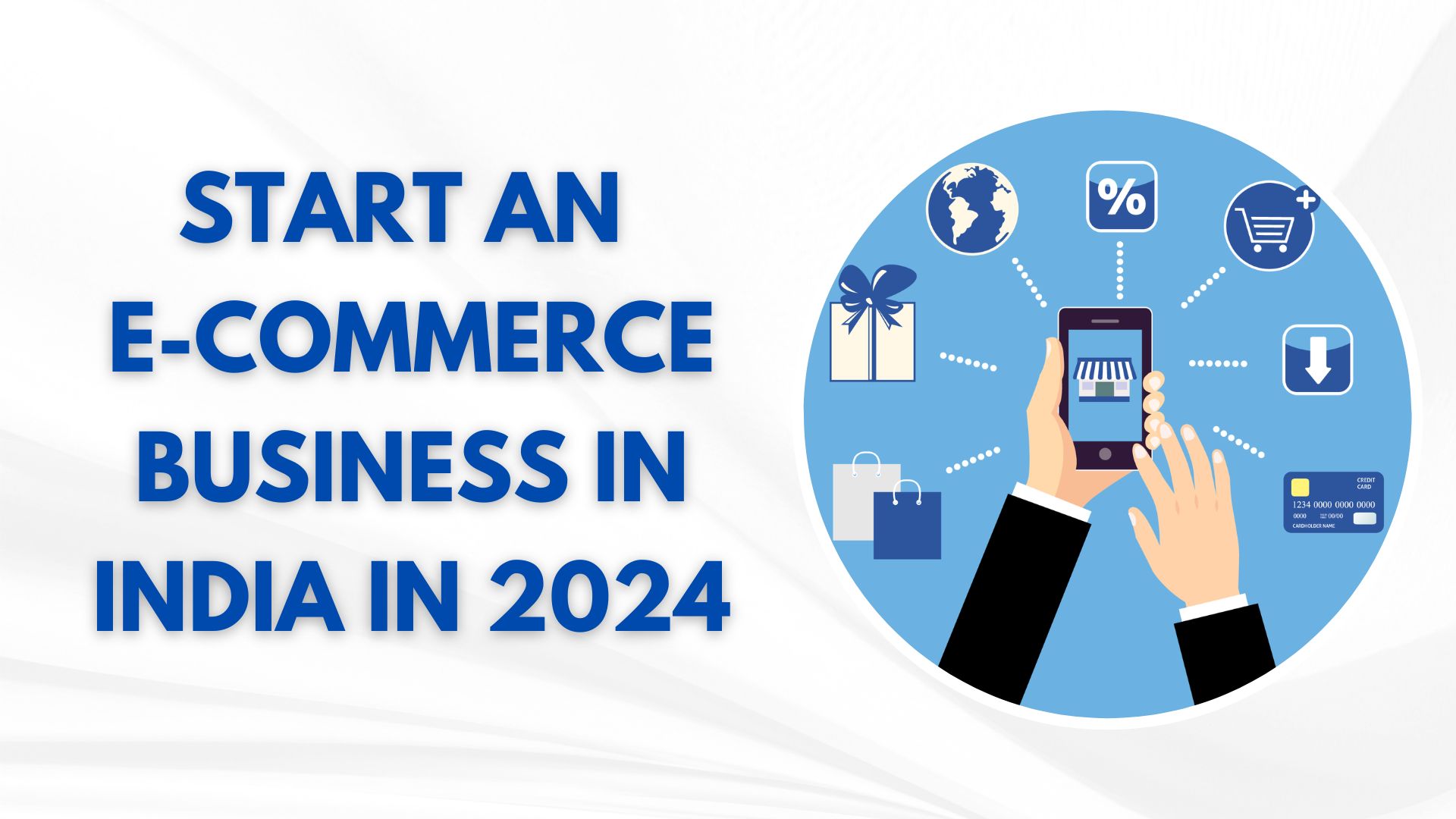What is E-commerce?
E-commerce (electronic commerce) is the buying and selling of goods and services, or the transmitting of funds or data, over an electronic network, primarily the internet. These business transactions occur either as business-to-business (B2B), business-to-consumer (B2C), consumer-to-consumer (C2C) or consumer-to-business (C2B).
Steps of start
an e-commerce business in India in 2024
Starting an e-commerce business in India involves several
key steps. These are the steps you need to follow to start an e-commerce
business in India 2024.
1. Market Research:
- Identify your niche and target audience.
- Analyze competitors and understand the demand for your
products.
2. Business Plan:
- Create a detailed business plan outlining your products,
target market, marketing strategy, and financial projections.
3. Legal Formalities:
4. Choose a Business Model:
- Decide whether you want to sell products directly, act as a
marketplace, or follow a dropshipping model.
5. Select a Business Name and Domain:
- Choose a unique and catchy business name.
- Register a domain for your online store.
6. Create an E-Commerce Website:
- Choose a reliable e-commerce platform (such as Shopify,
Woo Commerce, or Magento) to build your website.
- Design an intuitive and user-friendly interface.
- Ensure mobile responsiveness for a seamless experience.
7. Payment Gateway Integration:
- Set up secure and user-friendly payment gateways to facilitate
online transactions.
8. Logistics and Shipping:
- Establish partnerships with reliable shipping and logistics
providers.
- Implement a robust system for order fulfillment and
tracking.
9. Digital Marketing:
- Develop a digital marketing strategy to drive traffic to
your website.
- Utilize social media, search engine optimization (SEO), and
email marketing.
10. Customer Support:
- Implement a responsive customer support system to address
inquiries and resolve issues promptly.
11. Security Measures:
- Ensure the security of your website, especially when dealing
with customer data and online transactions.
12. Compliance with E-Commerce Regulations:
- Stay informed about e-commerce regulations and comply with
consumer protection laws.
13. Product Listing and Pricing:
- Create compelling product listings with high-quality images
and detailed descriptions.
- Set competitive and profitable pricing.
14. Build Trust:
- Display customer reviews and testimonials.
- Offer transparent policies regarding returns, refunds, and
shipping.
15. Scaling Up:
- Monitor your business performance and adapt strategies
accordingly.
- Explore opportunities for expansion and scaling up.
- Remember, the success of your e-commerce business will
depend on continuous adaptation, customer satisfaction, and staying updated
with industry trends. It's also advisable to consult with professionals, such
as legal and financial experts, to ensure compliance and sound business
practices.
What are the key benefits of e-commerce business in India in 2024?
E-commerce offers a wide range of benefits for businesses in
2024, consumers, and the economy as a whole. Here are some of the key
advantages of business in India in 2024
1. Global Reach:
- E-commerce allows
businesses to reach a global audience without the need for physical stores in
multiple locations. This expands market potential significantly.
2. 24/7 Availability:
- Online stores
operate 24/7, providing consumers with the flexibility to shop at any time,
increasing accessibility and convenience.
3. Reduced Operational Costs:
- E-commerce
businesses often have lower overhead costs compared to traditional
brick-and-mortar stores. There are fewer expenses related to physical space,
utilities, and staff.
4. Increased Customer Reach and Targeting:
- Through digital
marketing and online presence, businesses can target specific customer segments
and demographics, leading to more effective marketing strategies.
5. Personalization and Customer Experience:
- E-commerce
platforms can use data analytics to personalize the shopping experience for
customers, offering product recommendations and personalized promotions.
6. Convenience for Customers:
- E-commerce
provides a convenient shopping experience. Customers can browse, compare, and
purchase products from the comfort of their homes or on the go using mobile
devices.
7. Cost-Effective Marketing
- Digital marketing
channels, such as social media, email, and search engine optimization, can be
cost-effective and provide a high return on investment.
8. Streamlined Inventory Management:
- E-commerce
platforms often come with integrated inventory management systems, helping
businesses efficiently track and manage their stock levels.
9. Faster and More Efficient Transactions:
- Online transactions
are generally faster and more efficient than traditional methods. This benefits
both businesses and customers.
10. Data Collection and Analytics:
- E-commerce
businesses can gather valuable data on customer behavior, preferences, and
trends, allowing for informed decision-making and targeted marketing efforts.
11. Easy Scalability:
- E-commerce
businesses can easily scale their operations without the need for significant
physical expansion. This flexibility is especially advantageous for growing
businesses.
12. Reduced Barriers to Entry:
- Starting an
e-commerce business is often more accessible and cost-effective than establishing
a brick-and-mortar store, reducing barriers to entry for entrepreneurs.
13. Customer Reviews and Social Proof:
- Customer reviews
and testimonials provide social proof, helping build trust and influencing
potential customers' purchasing decisions.
14. Environmental Impact:
- E-commerce can
contribute to reducing the environmental impact associated with traditional
retail, as it often involves less physical infrastructure and transportation.
15. Innovative Technologies:
- E-commerce
platforms can leverage innovative technologies such as artificial intelligence
and augmented reality to enhance the online shopping experience.
- These benefits make e-commerce an attractive and efficient
channel for both businesses and consumers, contributing to the growth and
evolution of the retail landscape.

